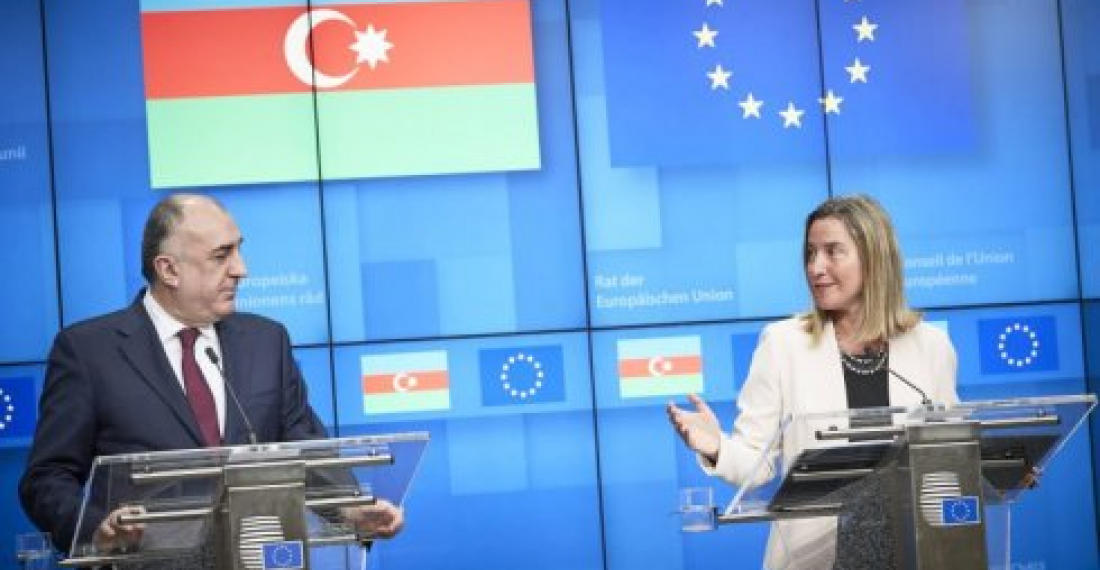The European Union and Azerbaijan are in the final stages of agreeing on the text of a new agreement that would provide for a contractual relationship between them, and hope that it may be initialled in the next weeks. Both sides confirmed this at a press conference at the end of the 16th Session of the EU - Azerbaijan Council in Brussels which was addressed by EU High Representative for Foreign and Security Policy, Federica Morgherini, EU Commissioner for Enlargement and the Neighbourhood Policy, Johannes Hahn, and Azerbaijani Foreign Minister Elmar Mammadyarov. Mammaadyarov said that 95% of the text had been agreed and asked for EU flexibility to agree the remaining 5%.
Initially the EU had offered Azerbaijan an Association Agreement similar to the one signed with Georgia and Ukraine, but the Azerbaijani government refused and said it wanted instead of a bespoke "Strategic Agreement", reflecting Azerbaijan's position as a key energy supplier to the EU.
During the press conference on Thursday morning (4 April) High Representative Morgherini reiterated that the European Union fully supports the independence, sovereignty and territorial integrity of Azerbaijan. Mogherini also said that the EU was ready to assist in the process to resolve the Nagorno-Karabakh conflict, through its support for the OSCE Minsk Group co-chair, through the good offices of its Special Representative for the South Caucasus and through people to people contacts and confidence-building measures.
source: commonspace.eu
photo: Foreign Minister of Azerbaijan Elmar Mammadyarov and EU High Representative, Federica Morgherini at their press conference in Brussels on 4 April 2019.







